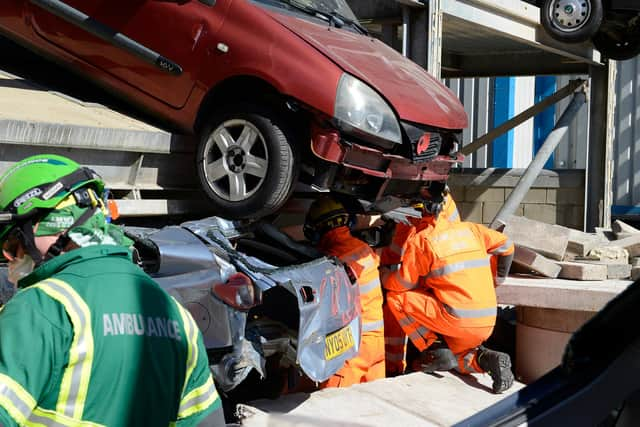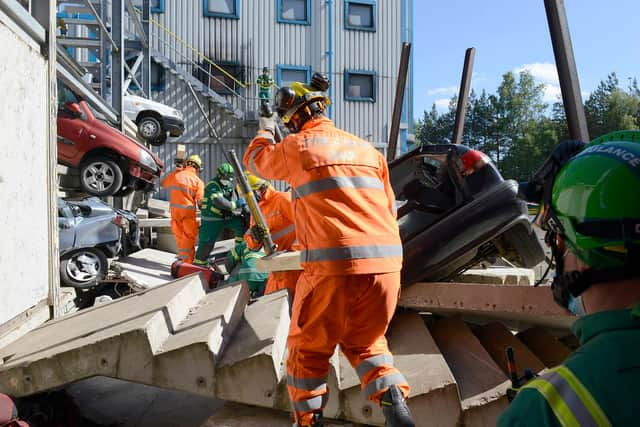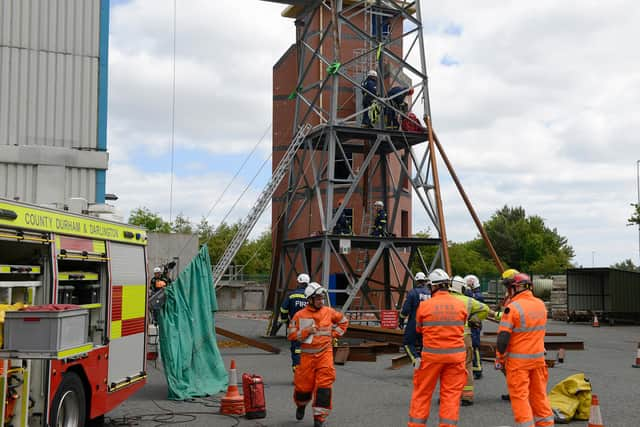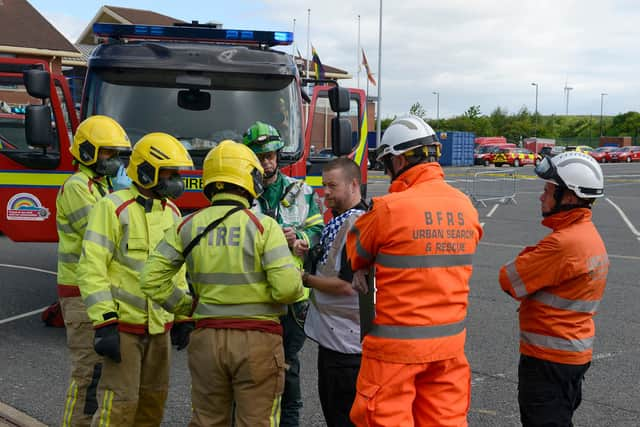Emergency crews tackle scenarios as they work together to put their training to the test
and live on Freeview channel 276
Tyne and Wear Fire and Rescue Service (TWFRS) hosted the National Resilience Urban Search and Rescue (USAR) training exercise at its headquarters at Barmston Mere, bringing almost 150 people together over the two-day test.
They faced a series of incident simulations to compare responses, helping a Home Office project look at how their work can be developed in the future.
Advertisement
Hide AdAdvertisement
Hide AdThe organisations who joined the host service included fire and rescue services from County Durham and Darlington; Lancashire; Cumbria and West Yorkshire.


Others also drafted in were Northumbria Police; the North East Ambulance Service’s Hazardous Area Response Team; Military Observer; Salvation Army; and Sunderland University’s paramedic science students.
Scenarios included a collapsed car park and block of flats; a train explosion rescue; a coach incident; at height call out to a pylon and investigating confined space in short and long travel distance.
TWFRS’s chief officer Chris Lowther said he was proud to host the event and showcase the region’s abilities.


Advertisement
Hide AdAdvertisement
Hide AdHe added: “This event was all part of that planning, not just for now but looking to the future as we continue to work together to ensure the safety of our communities and that of the wider community.
“Today prepares us all for tomorrow’s unknown.”
Steve Gadsdon, USAR Capability Advisor - NFCC National Resilience Assurance Team, sent his thanks to the student paramedics who volunteered as casualties and Sunderland’s branch of the Salvation Army for providing welfare support during the sessions.


He added: “The whole event was put together by a multi-agency planning and delivery group, which ensured the event not only met the objectives of the USAR capability team but also exceeded the expectations of everyone who participated.
“Well done and thank you to everyone involved.”
Mark Willis, the university’s programme lead for BSc (Hons) Paramedic Science and Out of Hospital Care, said: "Although this was simulated, it will be a valuable learning experience for all of those involved and I am sure it's one that the students will never forget.


Advertisement
Hide AdAdvertisement
Hide Ad“Should they ever be called to put into practice the skills learned, then this can only assist in that process."
